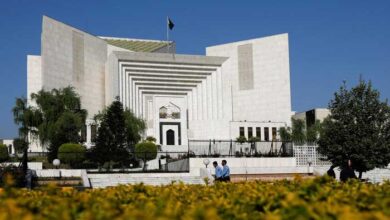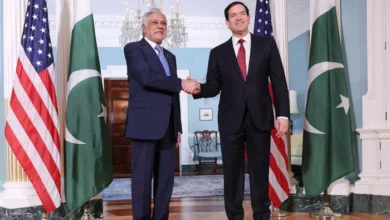For years, the people of Pakistan have dreamed of a better future, with every citizen holding hopes of education, employment, and housing for their children. But when inflation, unemployment, and economic complications rise at home, these dreams begin to fade.
Some people endure life in Pakistan with patience, while others turn abroad in search of a better life for themselves and their families. Today, this idea of migration is often tied to Belarus.
During Prime Minister Shehbaz Sharif’s visit to Belarus, it was announced that nearly 150,000 Pakistanis could be sent there.
However, this promise has not yet materialized into a formal agreement. This gap has provided a golden opportunity for agent mafias, who openly lure citizens on YouTube and TikTok with promises of “Belarus visas,” charging millions of rupees and trapping unsuspecting citizens in their nets.
Agents charge between 1.8 to 2.8 million rupees from each individual, convincing them that Belarus is the gateway to Europe.
Once in Belarus, the grim reality unfolds. Most Pakistanis are handed nothing more than a registration sticker, with no job guarantee and meagre monthly salaries of $400 to $500. Many are sent through fake companies where there is neither work nor security.
A darker truth also emerges. Many Pakistanis view Belarus merely as a “transit point” to Europe and attempt to cross illegally into Poland. In freezing nights, snowy forests, and treacherous paths, countless young men lose their lives. Some bodies remain in the woods, and their families never learn what became of their loved ones. These harrowing scenes represent a human tragedy that shakes the conscience of every Pakistani.
In this context, the role of the Pakistani Embassy in Minsk is of utmost importance. The embassy should serve as the first refuge for citizens and as the guardian of their lives and property in Belarus. It must raise awareness for citizens intending to travel, take action against fake companies and fraudulent work permits, establish a legal aid desk for affected Pakistanis, provide urgent assistance for those stranded at borders, and work with the Belarusian government to find lawful pathways.
Unfortunately, the embassy’s role has largely been limited to formal activities, and this silence has only emboldened agents. On YouTube and TikTok, scams and fraud continue to be openly advertised without accountability.
This human tragedy is not confined to financial loss alone—it also poses a grave threat to Pakistan’s future. Young Pakistanis who leave their skills, education, and hard work behind in Belarus’s forests contribute to the depletion of the nation’s human capital.
If this continues, Pakistan may soon face a shortage of skilled and educated people, reducing the country to nothing more than a consumer nation. At such a time, the government and the FIA bear a heavy responsibility. Immediate action against illegal agents, blocking of their online advertisements, stronger oversight of embassies, and transparent awareness campaigns for the public are critical. Legal, financial, and psychological support must also be extended to victims.
Pakistani youth are the nation’s most valuable asset. If they are given opportunities for progress at home, they can serve the country and stand at the forefront of safeguarding their dreams. Without vision and practical steps, however, this cycle of migration will not stop, and the dream of Belarus will one day turn into a journey of death.
Institutions must move, agents must be brought under the grip of the law, and embassies must fulfill their responsibilities. Otherwise, Belarus will not be the gateway to Europe for Pakistanis, but a path to the grave.
This is a moment for the nation to pause and decide: Are we sacrificing the development of our country by sending skilled youth abroad, or will we guide them toward safe, transparent, and legal pathways for progress? The dream of Belarus has taught us one lesson—that every dream requires careful planning, respect for law, and responsible institutions to turn it into reality.







